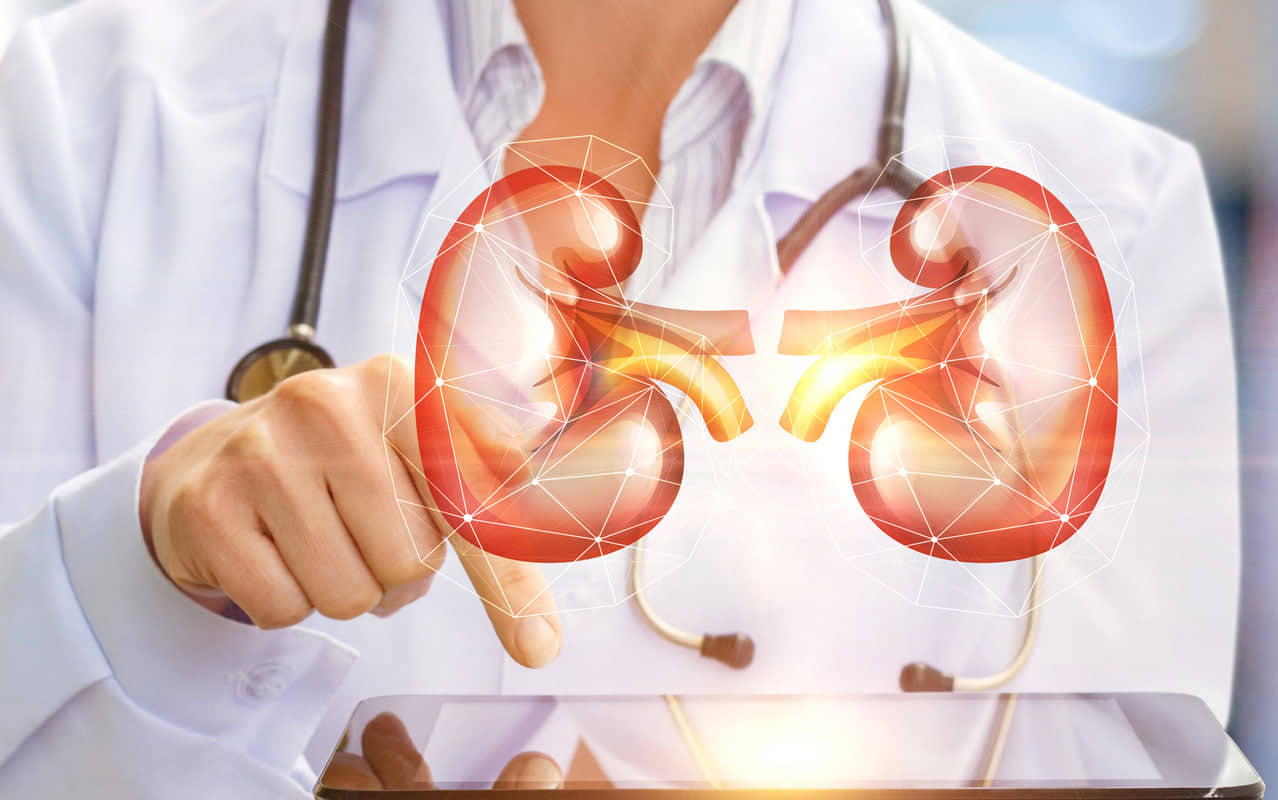
Urology Cancer Hospital
Zydus Cancer Hospital / Urology Cancer Hospital
Urologic Cancers affect the organs and structures of the male and female urinary system and the male reproductive system.
Types of Urologic Cancers:
- Bladder Cancer
- Renal (kidney) Cancer
- Testicular Cancer
- Penile Cancer
- Urethral Cancer
- Prostate Cancer

Bladder Cancer:
It affects the cells that line the urinary bladder, a small sac that collects urine for excretion.
Symptoms of Bladder Cancer
- Blood in the urine
- Problems with urination
- Lower back pain
- Overly frequent urination
- Painful urination
Causes of Bladder Cancer
- Age over 40
- A job in the dye, leather, or rubber industries
- Being male
- Prior cancer treatment with arsenic or cyclophosphamide
Renal (kidney) Cancer :
It forms in the small tubes that clean the blood of the kidneys. Renal Pelvis Cancer is a rare form of this disease. It occurs in the part of the kidney that connects to the bladder.
Symptoms of Renal (kidney) Cancer:
- Anaemia
- Appetite loss
- Blood in the urine
- Enlarged veins (varicocele) near a testicle
- Fatigue
- High blood pressure
- Lump on the side or back
- Pain in the side or back
- Swelling of the ankles and legs
- Unexplained weight loss
Causes of Renal (kidney) Cancer:
- Exposure to asbestos or cadmium
- High blood pressure
- Long-term dialysis
- Obesity
- Occupation in the iron and steel industries
- Von Hippel-Lindau syndrome
Testicular Cancer :
forms in a testis and accounts for only one percent of all cancers in men.
Symptoms of Testicular Cancer:
- Changes in size or firmness of testicles
- Dull ache in the groin
- Fluid build-up in the scrotum
- Pain in a testicle or the scrotum
- Painless lump or swelling on either testicle
- Breast tenderness or growth (gynecomastia)
Causes of Testicular Cancer:
- Abnormal testicular development
- Family history
- Undescended testicle (cryptorchidism)
Penile Cancer:
A rare type of cancer that affects the penis — the male reproductive organ, which is as a part of the urinary system.
Symptoms of Penile Cancer:
- Blood at the tip of the penis
- Colour changes
- Discharge with odour
- Growths or sores
- Irregular swelling
- Pain
- Rash or bumps under the foreskin
- Swollen lymph nodes in the groin
- Thickened skin
Causes of Penile Cancer:
- Age over 50
- HIV/AIDS infection
- Human papillomavirus (HPV) infection
- Poor personal hygiene
- Psoriasis treatment with psoralen and ultraviolet light
Urethral Cancer:
It occurs in the urethra, the tube that conducts urine from the bladder to the outside of the body. In men, the urethra travels through the penis; it also carries semen. Urethral Cancer is rare, and it occurs more often in men than in women.
Symptoms of Urethral Cancer:
- Bleeding from the urethra
- Blood in the urine
- Discharge
- Enlarged lymph nodes in the groin
- Interrupted urine flow
- Lump in the perineum or penis
Causes of Urethral Cancer:
- Age over 60
- Being female
- Frequent urinary tract infections
- History of bladder cancer
- History or presence of sexually transmitted diseases
Prostate Cancer:
Prostate Cancer is cancer that occurs in the prostate — a small walnut-shaped gland in men that produces the seminal fluid that nourishes and transports sperm.
Prostate Cancer grows slowly over a period of time and can spread to surrounding organs like urinary bladder, seminal vesicle and rectum; many a times it spreads to bones as well.
Symptoms of Prostate Cancer:
- Trouble urinating
- Decreased force in the stream of urine
- Blood in semen
- Discomfort in the pelvic area
- Bone pain
- Erectile dysfunction
Causes of Prostate Cancer:
- Prostate cancer increases as you age
- Colour of skin
- Family history
- Obesity
Preventions of Urologic Cancer:
- Digital rectal exam (DRE)
- Prostate-specific antigen (PSA) test
Diagnosis of Urologic Cancer:
- Ultrasound
- Collecting a sample of prostate tissue.
- PET Scan
- Bone Scan
- CT Scan
- MRI Fusion
- X-Ray
Treatment of Urologic cancer:
- Chemotherapy
- Hormone therapy
- Radiation therapy
- Surgery
- Supportive care
Salient Features:
- Full-time dedicated specialist so as to provide 24x7 services throughout the year
- Urologic Oncology concerns the surgical treatment of malignant genitourinary diseases such as cancer of the prostate, adrenal glands, bladder, kidneys, ureters, testicles, and penis procedures are performed Laparoscopically
- Personalised Uro Onco screening and monitoring plans at increased risk for Prostate Cancer through our screening programme


